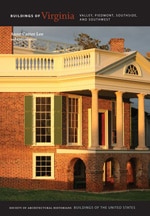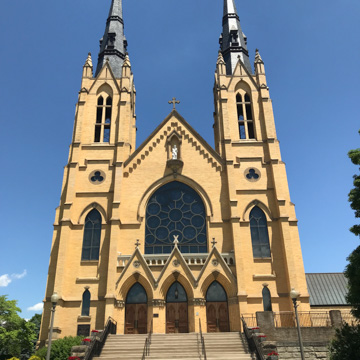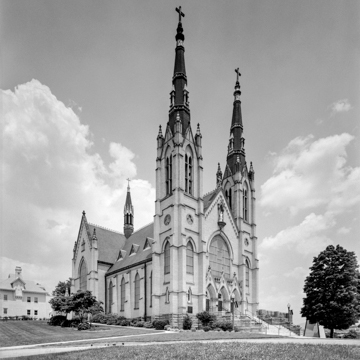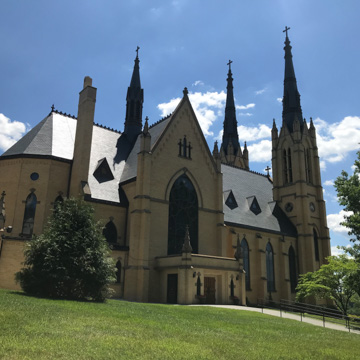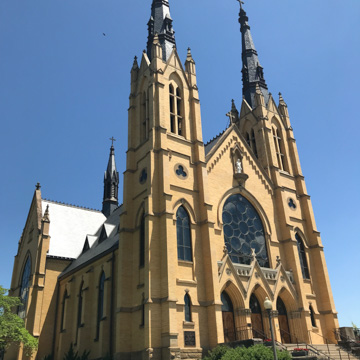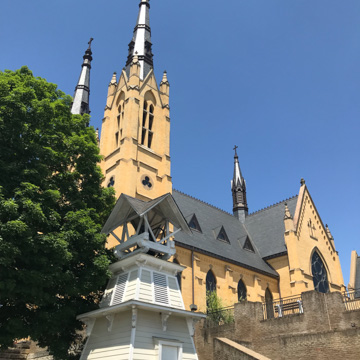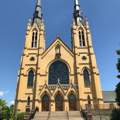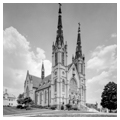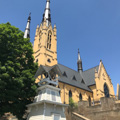Standing atop Railroad Hill, this church, which replaced an earlier building for its congregation of Catholic railroad employees, was funded by Ida Barry Ryan, wife of Thomas Fortune Ryan of Oak Ridge (NE9). The church is a rare example in Virginia of yellow brick High Victorian Gothic. The church has a characteristically French facade composed of twin front towers flanking three deeply recessed portals beneath a rose window. Above the rose window is a niche with a statue of St. Andrew. Tall spires, buttresses, corbeling, roof cresting, and a flèche at the crossing of the nave and transept add excitement to the church's bold silhouette. Steps lead up to the three gabled portals that open to the narthex and stairways to the balcony above it. Rib vaults terminating in pendants cover the nave. The richly decorated interior includes ceiling and wall stenciling of vines, branches, and flowers that was added in 1947, and a white marble altar and railings. The Franz Mayer Company of Munich, Germany, created some of the stained glass windows.
You are here
St. Andrew's Catholic Church
If SAH Archipedia has been useful to you, please consider supporting it.
SAH Archipedia tells the story of the United States through its buildings, landscapes, and cities. This freely available resource empowers the public with authoritative knowledge that deepens their understanding and appreciation of the built environment. But the Society of Architectural Historians, which created SAH Archipedia with University of Virginia Press, needs your support to maintain the high-caliber research, writing, photography, cartography, editing, design, and programming that make SAH Archipedia a trusted online resource available to all who value the history of place, heritage tourism, and learning.

